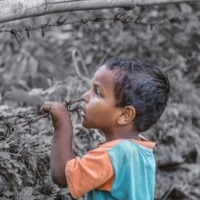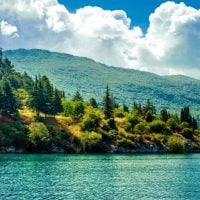Deadline: 16-Jun-23
The Save Our Seas Foundation invites applications for small projects up to US$10,000 (with grants averaging US$5,000) for the period March 2024 to February 2025.
This grant is designed for short (12 to 18 months) and small projects dedicated to early career scientists (applicants must be within five years of a degree being awarded). Aimed at original and innovative start- up projects, the grant presents early career scientists, conservationists or educators with an opportunity to prove themselves.
It targets local projects conducted by local project leaders. Whether or not the project is part of a larger endeavour, SOSF Small Grants are for specific and finite projects. Only projects concerned with marine chondrichthyan species (sharks, rays, skates, sawfishes and chimaeras) will be considered.
The focus of the Foundation is on threatened marine megafauna, and more specifically on elasmobranchs (sharks, rays and skates).
Areas
- Most of the projects supported by the Foundation currently fall into one or more of three major programme areas:
- Research
- Conservation
- Education
Funding Information
- Small projects up to US$10,000 (with grants averaging US$5,000).
General Approach
- The Save Our Seas Foundation (SOSF) is committed to supporting activities that have the capacity to make a real difference to the health of the oceans and to the survival of threatened aquatic species and habitats.
- With a view to achieving this aim, the Foundation has developed a policy of supporting, in particular, applicants working on exceptional projects, on remarkable species or habitats and/or in unique locations.
- The purpose of this policy is to support research, conservation or educational projects that are capable of attracting significant public attention and that, as a result, may genuinely increase public and government awareness of the urgent need to protect the marine environment.
- As part of this approach, the Foundation requires all grant holders to undertake public awareness and environmental educational activities (giving talks, issuing press releases, etc.) as part of their project.
- Foundation staff (including the dedicated SOSF Communications team) is available to assist grant holders in such public relations work, and grant holders are expected to collaborate with them in preparing public awareness materials.
Application Process
- The Small Grant application process consists of a two-stage online application: Stage I involves completing a short online form, equivalent to two pages. Stage II, by invitation only based on the Stage I application, will involve the completion of a longer and more detailed online form, equivalent to a maximum of 10 pages.
- Funding is awarded for only one financial year. The SOSF will consider small grant applications that, inter alia, aim to undertake the preliminary investigations necessary before a larger, longer-term project can be developed.
- Successful applicants for small project grants, including scoping projects, are not eligible to submit a Small Grant application the following year, but are not excluded from submitting a new Keystone Grant application.
- Only one application will be accepted from any one applicant.
- All applications will be reviewed by the SOSF scientific committee and require final approval from the Foundation’s Board of Directors.
Financial Restrictions
- The costs of short-term employees or the short-term extra costs of an individual’s participation in a project may be eligible, if justified. Small grantees may include a stipend if sufficiently justified and not exceeding 10% of the budget.
- The Foundation does not support publication-associated costs through regular funding.
- The Foundation does not support the attendance of conferences in allocated funding as it is already providing Student Travel Grants to the AES, the EEA, the OCS and Sharks International.
- The Foundation does not support satellite tags in SOSF Small Grants.
- The Foundation will not consider applications in which more than 10% of requested funding is allocated to travel expenses. The Foundation promotes local projects by local people.
- All equipment funded remains the property of the NGO or institution.
- The Foundation is not able to pay overheads, administration and handling fees to large commercial or non-commercial, governmental or non-governmental institutions or organisations (such as Universities or Non-Governmental Organisations). SOSF funds project leaders and projects.
- Joint funding/co-funding of a project by SOSF with another funding agency is welcomed, but not essential.
For more information, visit SOSF.









































